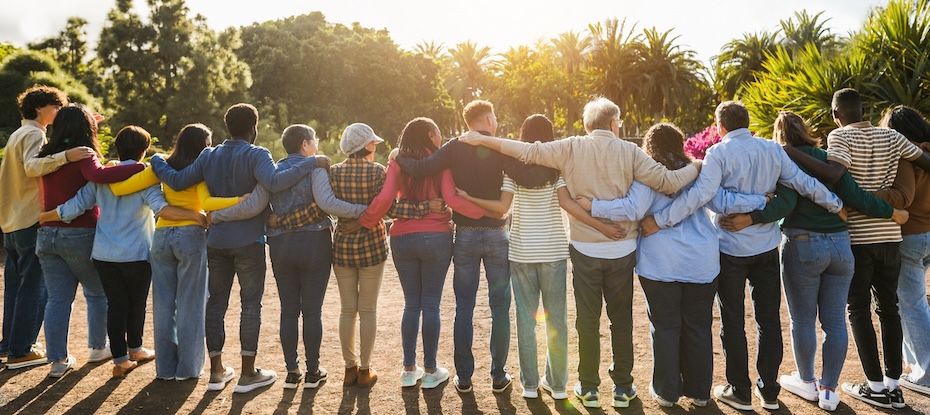
"Gratitude is the ability to experience life as a gift. It liberates us from the prison of self-preoccupation." — John Ortberg
Self-gratitude: a transformative practice that can significantly impact mental and emotional well-being—and taking action can be simple and bring life-changing marks.
At its core, self-gratitude involves acknowledging and appreciating oneself, which fosters a positive mindset and contributes to a healthier, more fulfilled life. This concept is not just about recognising the good externally but also about valuing oneself internally. In a society where external achievements often overshadow emotional wellbeing, understanding and practising self gratitude can pave the way to lasting happiness and inner peace.
The Power of Gratitude: 5 Benefits
- Shifts Perspective and Promotes Emotional Resilience: Gratitude can transform your perspective from negative to positive, crucial for developing emotional resilience. Recognising the good aspects of your life can reduce the impact of stress and adversity.
- Overcomes Negative Thought Patterns: Practicing gratitude helps break the cycle of negative thoughts by refocusing the mind on positive aspects of life, fostering healthier mental habits and a more optimistic outlook.
- Embraces Acceptance and Helps Let Go of Perfectionism: Self gratitude teaches you to accept life as it unfolds and to let go of the pursuit of perfection. This reduces frustration and increases life satisfaction by embracing imperfections as part of the human experience.
- Enhances Relationships: Gratitude can improve your relationships by making you more appreciative and responsive to the kindness and support of others, which in turn encourages a positive social exchange and stronger connections.
- Increases Self Esteem: When you regularly acknowledge your achievements and qualities, you are likely to feel more confident. Gratitude and self esteem go hand in hand, as recognising your own value fosters a healthier self-image.
How Self-Gratitude Contributes to Inner Peace & Well-being
Self gratitude is a powerful tool for cultivating inner peace and emotional well-being. But what does inner peace actually mean?
Mental calmness
Emotional equilibrium
Feeling stable
Serenity
All despite external stresses or challenges.
Although this doesn't mean being in a "neutral" state that avoids peaks of joy or downs of sadness, this psychological or spiritual state is characterised by being able to manage feelings effectively, having a clear and focused mind that is not overwhelmed by worries or negativity, and a general sense of contentment and acceptance of life as it unfolds. This state doesn’t mean suppressing emotions, but rather learning how to find inner peace by managing feelings effectively. Achieving this state is essential for leading a balanced and happy life, as it influences one's reactions to stress and their relationships with others.
Mindfulness Techniques to Anchor Yourself in the Present Moment
How to find inner peace is a question that may arise without a clear answer. It often involves practices such as mindfulness, meditation, and gratitude, which help cultivate a harmonious relationship with oneself and the surrounding world.
The following mindfulness techniques are effective in anchoring oneself in the present moment. These practices help dissipate stress and bring about a peaceful state of mind:
- Deep Breathing: This technique involves focusing on slow, deliberate breaths, which helps reduce stress and promotes relaxation by calming the mind and body.
- Meditation: Meditation is the practice of focusing one's mind on a particular object, thought, or activity to achieve a mentally clear (not "blank") and emotionally calm state.
- Mindful Walking: Mindful walking entails walking slowly and deliberately, paying close attention to the movement of the body, the sensation of your feet touching the ground, and the environment around you to cultivate awareness and presence.
These methods not only calm the mind but also support your journey towards self gratitude and inner peace.

Gratitude and Self-Esteem: Cultivating a Positive Self-Image
Practising self gratitude directly influences gratitude and self esteem by shaping how you view yourself:
Recognising one's value and accomplishments,
Bolsters self-esteem,
which leads to a healthier self-image and improved mental health.
Simple practices like maintaining a gratitude journal or engaging in reflective meditation can reinforce feelings of self-worth (read below for more on cultivating these habits). Focus on personal strengths and victories to combat negative self-perceptions and grow confidence. This resilience is crucial in facing challenges with a positive outlook and emerging stronger from them.
Daily Habits for Cultivating Self-Gratitude
- Gratitude Journaling
Keeping a gratitude journal is a simple yet powerful way to cultivate self gratitude. A daily log to reflect on blessings and personal achievements can help cultivate a heightened awareness and appreciation for your life's journey. This practice encourages you to focus on the positives each day, helping to shift your mindset from what's lacking to what's abundant.
Over time, consistently recognising these positive aspects can build a deeper sense of satisfaction and well-being, reinforcing a positive feedback loop in your thoughts and feelings - it becomes a habit. Whether it's acknowledging a kind word from a colleague, celebrating a personal milestone, or simply appreciating a moment of peace, gratitude journaling can significantly enrich your emotional landscape and support a healthier, more grateful approach to life. - Affirmations and Positive Self-Talk
Positive affirmations and self-talk are vital in reinforcing self-gratitude and improving self-image. These practices encourage a nurturing internal dialogue that supports personal growth. By regularly using affirmations, you remind yourself of your strengths, capabilities, and worth, which can significantly alter how you perceive and react to challenges.
Positive self-talk serves as a mental filter, helping reduce the impact of negative emotions and enhancing your resilience against stress. This shift in mindset fosters a greater sense of inner peace and empowers you to approach life with a more optimistic and proactive attitude. This becomes even more powerful when we understand that the way we talk to ourselves can profoundly influence our overall life trajectory. - Self-Care and Compassion
Self-care is an essential aspect of self-gratitude. By engaging in activities that nurture the body and mind, you honour your well-being and acknowledge your worth. These acts can range from taking a relaxing bath to setting boundaries that protect your energy. Each act of self-care is a statement of self-respect and an investment in your long-term health. By treating yourself with kindness and prioritising your needs, you're reinforcing the core values of self gratitude and nurturing your inner peace.
Moreover, consistent self-care practices not only improve your physical health but also enhance your mental and emotional resilience. When you take time to care for yourself, you're better equipped to manage stress and recover from life's challenges. This approach to health can lead to a more balanced and joyful life as you learn to prioritise your needs and embrace your worth. - Seeking Community and Support from Loved Ones
Seeking support from loved ones and the community can help nurture self-gratitude and enhance emotional well-being. Engaging in open communication with friends, family, or members of support groups improves your sense of belonging and reinforces the notion that you're not alone in your experiences and enhance your gratitude and self esteem. This social support can be life-changing in providing encouragement, understanding, and validation to face life's challenges.
Furthermore, these relationships act as mirrors reflecting the shared human experience, allowing you to see and appreciate your strengths and qualities through the eyes of others. By hugging the feedback and diverse viewpoints you can deepen your self-gratitude and cultivate self-compassion.

- Grounding Exercises to Centre Yourself During Times of Stress
Grounding exercises help to bring your focus back to the present when you feel overwhelmed by stress (too many thoughts about the past) or anxiety (too many thoughts about the future). Techniques such as closing your eyes and focusing on your breath, feeling your feet on the ground, or engaging in sensory experiences like smelling a favourite scent can effectively reduce stress, bring calm, and enhance feelings of gratitude for the moment.
Regular practices of grounding exercises can train your brain to stay connected with the present environment, which often leads to a reduction in feelings of anxiety and an increase in mental clarity. These exercises are especially effective when you’re striving to find inner peace.
Connecting with Nature and Engaging in Mindful Movement
Connecting with nature and engaging in mindful movement can be deeply restorative and grounding activities. The tranquillity and beauty found in natural settings can help reduce feelings of stress and promote a sense of inner peace. When you pair this with the conscious, deliberate movements of practices like yoga or stretching, the benefits grow. Mindful movements encourage a closer connection with your body, promoting an appreciation for your capabilities and resilience.
This combination of enjoying nature and participating in gentle exercise allows for a holistic nurturing of the self and a powerful act of self gratitude and wellness.
Creating a Self-Gratitude Ritual
Establishing a personal ritual is one of the most sustainable ways to develop self gratitude. This can be as simple as:
Writing three things you’re proud of each morning
Meditating on a personal achievement weekly
Setting intentions that reflect your values and self-worth
This consistent effort helps strengthen gratitude and self esteem, and guides your journey on how to find inner peace in everyday life.
Frequently Asked Questions
What is self gratitude and why is it important?
Self gratitude is the act of acknowledging and appreciating yourself for who you are and what you’ve achieved. It plays a crucial role in mental and emotional well-being by boosting self-esteem and promoting inner peace.
How does self gratitude improve self esteem?
Practising self gratitude helps shift your focus from flaws to strengths, allowing you to recognise your worth. This builds a more positive self-image and supports healthier self-esteem.
Can gratitude help you find inner peace?
Yes, expressing gratitude regularly—especially towards yourself—can calm the mind, reduce stress, and create emotional balance, all of which contribute to achieving inner peace.
What are some simple ways to practise self gratitude daily?
You can start with gratitude journaling, positive affirmations, mindful breathing, and taking time to acknowledge your daily wins and strengths.
How are gratitude and self esteem connected?
Gratitude and self esteem go hand in hand. By recognising and valuing your experiences and qualities, you reinforce your self-worth and reduce negative self-talk.
How do I find inner peace through gratitude and mindfulness?
Practising mindfulness techniques like meditation and grounding exercises, along with daily gratitude habits, helps calm your thoughts and allows you to develop a deeper sense of inner peace.
Embrace Self-Gratitude for Lasting Well-Being and Inner Peace
Embracing gratitude and self esteem is more than a daily practice; it's a lifestyle choice that can lead to profound changes in how you view yourself and interact with the world - and the journey begins with acknowledging and appreciating yourself. Remember to prioritize your health by utilizing preventive care services covered by health insurance ensuring you stay healthy and resilient
Start your journey towards inner peace and well-being today by embracing daily habits that foster self-gratitude. Prioritize your mental and emotional health through gratitude practices and self-care. Take the next step in your wellness journey by getting a quote for HIF's Healthy Lifestyle Cover, empowering yourself to access comprehensive support for your holistic well-being.